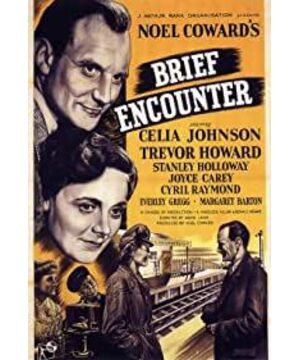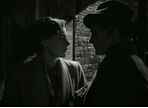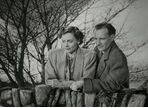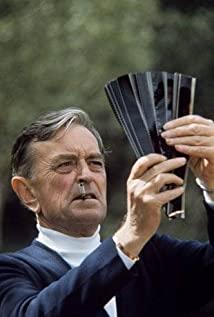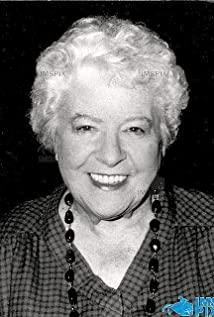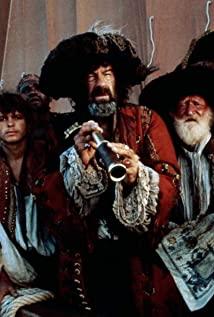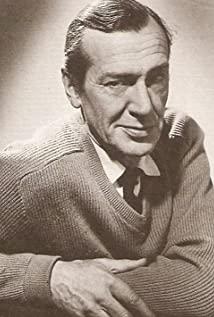This film is a classic British business card in the 1940s. Through a pair of middle-class men and women’s second spring experience, it vividly depicts the British national mentality before and after the war. It has a distinctive imprint of the times. .
The conservative stereotypes of the British are well known to the world. When Britain transitioned from feudalism to capitalism, it did not experience a torrential revolution like France. The old state apparatus was not completely shattered. The old hierarchy and old ethics and morality still restrained people's thinking until the early postwar period. , To regulate people's words and deeds, so British society is more rigid and conservative than other capitalist countries. On the other hand, British society is big in the middle and small in both ends. The middle class is the most representative in the UK. The protagonists Laura and Alec are the typical British people of that era. The choreographer asked them to meet and score twice, and then use their emotional waves to further develop the deep structure of British psychology. Laura is a very ordinary British middle-class housewife who is a good wife and mother. Her life is the same: doing housework, serving her husband, and raising children. Her pleasure is to go to the city to watch movies every week, borrow books, and then sit around the fireplace with her husband in the evening to read, talk, and do work. This is the most typical British middle-class family Aulacese. Day after day, year after year, she was also quite contented. However, a particle of coal dust caused a slight ripple in the stagnant water. The encounter and association with Alec disturbed her life and the tranquility of her mood. Her mood quietly changed, and an inexplicable complex feeling disturbed her. On the one hand, the tryst with Alec brought a touch of newness to her rigid life. The love that had been suppressed in the bottom of her heart for many years was suddenly activated and revealed. She had not experienced this kind of pleasure for a long time; on the other hand, in her mind Her traditional morality also reminded her not to forget her promise to her husband and not to provoke criticism. Two opposing ideas violently charged her heart, making her actions full of contradictions: she suddenly agreed to date Alec, and was condemned by her conscience because her son was injured in a car accident; she suddenly refused to be with Alec. Ke was alone in a room, and suddenly rushed back to his residence to give him a hug. After a fierce and painful inner struggle, the traditional ideas accumulated in the depths of the soul finally gained the upper hand, and she resolutely broke off contact with Alec. This choice is extremely painful: once the parting came true, she almost committed suicide. Throughout Laura’s entire mental journey, we can strongly feel how deep-rooted the traditional values that governed the British thoughts, words and deeds before the 1950s. "Self-restraint and do not overstep the rules" has always been the creed that the British rely on for self-discipline, and they live a hypocritical and self-deceiving life under this rigid shell. However, people are driven by seven emotions and six desires, and their thinking and behavior are inevitably out of line. Moreover, people's true emotions are suppressed for a long time, and it is bound to form a sense of hunger and thirst. Once they are tempted by outsiders, they will easily respond. The main theme of this film is to show a "cultivated" (that is, subject to traditional ethics Even if an Englishman who has been edified by moral values occasionally acts out of the ordinary, he (she) will eventually restrain himself and return to the old order. Extramarital affair is a common subject in literary and artistic works, but the film's processing method is very British. The final choice of the protagonist in the film and the strong resonance of the film in the British audience and film critics all show the value orientation of the British in that era. Although Laura's husband Fred does not have many shots, his words and deeds are also very representative. He is not ignorant of the emotional ripples of his wife, but he does not break it. Finally, when Laura "gets lost and knows back", he is tolerant but vaguely welcomes it. This is a typical "British gentleman's demeanor" and sheer hypocrisy. .
This film is also a successful drama adaptation. Britain has a long tradition of literature and drama, which is also the pride of its national culture. From the beginning of the film’s birth, Britain has continuously put its famous dramas on the screen, and later formed two styles: one is to maintain the original drama form (such as "The Prince's Revenge"), the other is to control the original intent, restructure, and completely Make it film. This film is a masterpiece of the latter style. Screenwriter Nor Coward is one of the most famous contemporary British playwrights. He created and starred in a 10-act drama series "Tonight at 8:30" in 1936, which caused great repercussions in Britain and the United States (American film broadcast by CCTV) In "Star!" Coward and the heroine Gertrude Lawrence co-star in the show and make a sensation on Broadway). Later, he cooperated with David Lean and adapted the scene of "Quiet Life" into the movie "Meeting Hate Late". Lean was one of the most influential directors in the post-war Britain. When he was an editor, he was acclaimed for editing the film "The Flower Girl" based on Bernard Shaw's famous play (the film). After becoming a British film classic, Lean contributed a lot). When Lean directed the film, he first made a cinematic change from the structure of the play: the original play had only one set, the interior of the station snack bar, and the spread of the plot mainly depends on the dialogue or inner monologue of the characters. Lean gave full play to the advantages of the film's freedom of time-space transformation, freeing some important plots (such as the frightened rendezvous) from the dictation of the people in the play, directly resorting to visual images, and using the intuitiveness and impact of the screen to infect audience. Another point that is different from the drama is that the film completely adopts Laura’s point of view, and uses flashbacks to show the plot in the form of looking back on the past. This first-person narrative method helps guide the audience to deepen the heroine’s soul. His thoughts and emotions are analyzed thoroughly. In addition, Lien also added a lot of shots that express mood and atmosphere. For example, after Laura and Alec said goodbye, all thoughts were grayed out, and even a suicidal thought flashed in his mind. Reen used a subjective lens of the wheels turning overhead to express Laura's thoughts. Then, the camera pointed at the moving car window glass again, and Laura's lost eyes and desperate expression were reflected on the glass. Lean uses film language to describe the details, and the effect is far beyond that of drama.
The film is also quite original in photography, styling, lighting and sound. For example, the railway station, which is the main background of the film, gives people a gloomy and depressed feeling. When Laura decided to cut off contact with Alec, the two stood in the dark and empty station. The strong light from the train behind them projected two long, lonely figures on the ground, and their faces were also hazy. The entire screen has only strong light and large black shadows. This strong contrast and still picture looks so heavy and stagnant, it is simply suffocating. When the two protagonists said their final farewells, Laura could not go to the platform to see off due to the presence of the uninteresting Dolly. At this time, Laura was still sitting in the snack bar listening to Dolly's nagging, but she repeated her words with Dolly. What mixed up and even suppressed her was the sound of the whistle and the turning of the wheels when the train started. At the same time, the flashing light and shadow of the carriage when the train left the station passed over Laura's face faster and faster. Here, Lean did not directly photograph the train that carried Alec away, but used the sound and light of the train to illuminate Laura’s thoughts, revealing her unwilling painful mood, which is implicit and subtle. The clever handling makes the film more appealing and more impressive to the audience. The keynote music of the film uses Rachmaninov’s Second Piano Concerto, which also plays an important role in setting off the film’s mood.
Another success of the film lies in the modeling and performance of the actors. The director deliberately chose not to choose actors with beautiful appearances, but emphasized that they should have the image and temperament of ordinary people in order to highlight the universal significance of the theme of the film. The two main actors, Celia in particular, did a good job of the choreographer's intention. The performance was simple and natural, just like your neighbors, who seemed cordial and believable. Celia was nominated for an Academy Award and the New York Film Critics Award.
After the film was released, it was praised by the British film critics as "one of the best films produced by a British studio". In 1952, the British "Picture and Sound" magazine ranked the film as the tenth place in the selection of the "Top Ten Best Films in the World" in history. However, in the magazine's 1962, 1972, and 1982 selections, the film fell short of its name. This also shows from one aspect that what this film reflects is the spiritual outlook and aesthetic taste of the British before and after the war. With the changes of the times, this kind of values and aesthetics have long appeared outdated and should not be taken seriously by people of the time. , But it is still a true portrayal of the British mentality of that era, and it still has a certain value for us to understand the British national spirit.
View more about Brief Encounter reviews


